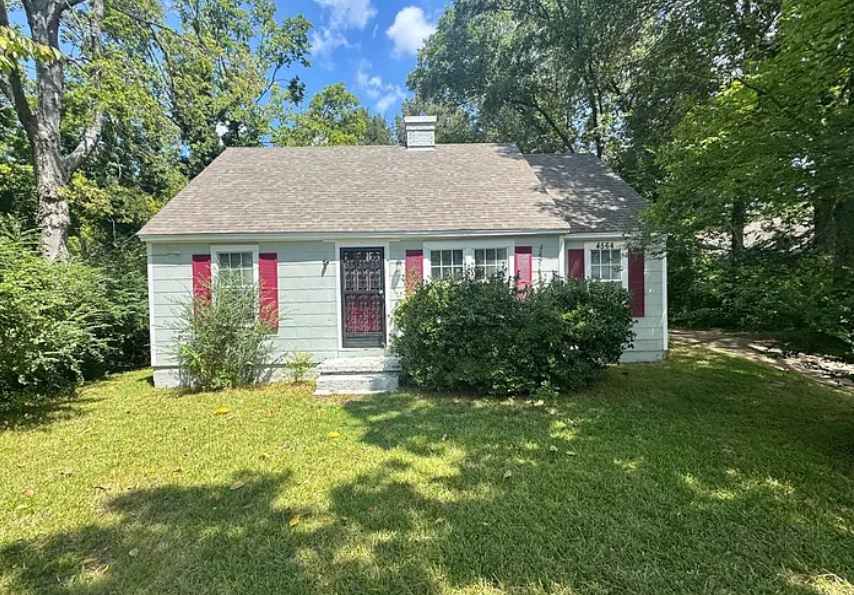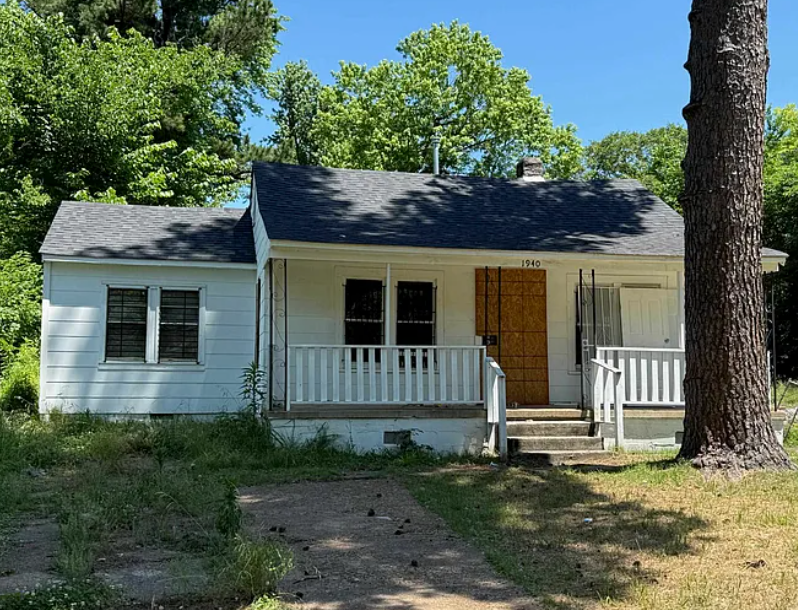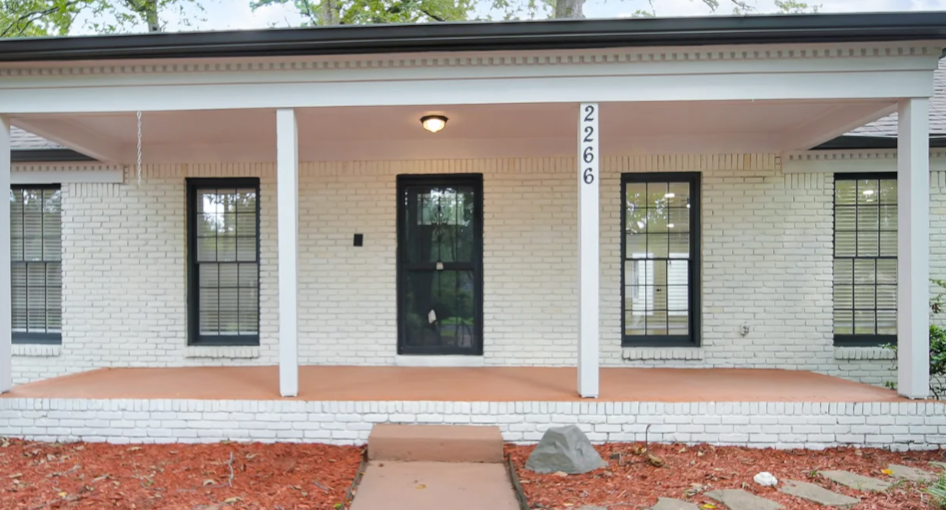How to Strategically Sell Your House While Buying Another
Key Highlights
- Selling your house while buying another requires careful planning and the guidance of an experienced real estate agent and attorney.
- Understanding the dual process of buying and selling a house is key successfully navigating the real estate market.
- The challenges and benefits of simultaneous transactions include the use of bridge loans, second mortgages, and home equity lines of credit.
- Timing considerations for simultaneous transactions involve factors such as closing costs, mortgage payments, and the closing date.
- To prepare to sell your house, enlist the help of a real estate agent and take essential steps to get your house market-ready.
- Setting the right price point is crucial in a competitive housing market to maximize your profit and attract potential buyers.
- Navigating the home buying process involves identifying your next dream home and securing financing through a mortgage lender.
- A beginner's guide to handling both transactions includes gathering necessary documents, evaluating your financial position, understanding the market dynamics, assembling a team of professionals, and planning for contingencies.
- Overcoming common obstacles such as financial strain and timing mistakes requires careful financial planning and consideration of contingency plans.
- Making a smooth transition from one home to another involves tips for a hassle-free move and adjusting to your new home and community.
- Frequently asked questions address managing the financial aspects of simultaneous buying and selling, dealing with misaligned timelines, buying a new house before selling the current one, and the risks involved in dual transactions.
Introduction
Selling your old house and buying your next home can be a challenging process, but with the right strategies and guidance, it can be a seamless transition. Whether you're looking to upgrade to a larger home, downsize for retirement, or relocate to a new city, strategically selling your house while buying another is possible. This blog will provide you with essential tips and insights on how to navigate the dual process of buying and selling a house, including understanding the challenges and benefits, timing considerations, and steps to prepare for both transactions. We'll also cover common obstacles you may encounter and provide expert advice on overcoming them. By following these guidelines and working with experienced professionals, you can sell your house and buy another with confidence and ease.
Understanding the Dual Process of Buying and Selling a House
When you're considering selling your house and buying another, it's important to understand the dual process involved. On one hand, you'll be selling your current home, which involves preparing it for the market, setting the right price, and attracting potential buyers. On the other hand, you'll be buying a new home, which requires identifying your next dream home, securing financing, and navigating the home buying process. These two processes are intertwined and can have an impact on each other's timelines and outcomes. By understanding the complexities of both transactions, you can strategically plan your move and ensure a successful outcome.
The Challenges and Benefits
Selling your house while buying another comes with its own set of challenges and benefits. One challenge is the need for additional financing to bridge the gap between selling your current home and purchasing a new one. This can be achieved through options like bridge loans, second mortgages, or home equity lines of credit. These financial tools allow you to access the equity in your current home to fund the purchase of your new home. However, they also come with their own risks and considerations, such as interest rates, repayment terms, and potential financial strain. On the other hand, the benefits of simultaneous transactions include the ability to seamlessly transition from one home to another without the need for temporary housing. It also allows you to take advantage of favorable market conditions, such as low interest rates or a seller's market. By weighing the challenges and benefits, you can make informed decisions and navigate the process more effectively.
Timing Considerations for Simultaneous Transactions
Timing is a crucial factor to consider when selling your house and buying another simultaneously. The coordination of closing dates and financial arrangements can significantly impact the success of both transactions. Here are some timing considerations to keep in mind:
- Closing Costs: Selling and buying a house involve various closing costs, such as agent commissions, attorney fees, and transfer taxes. Timing the transactions to minimize these costs can help you save money.
- Mortgage Payments: If you're carrying a mortgage on your current home, you'll need to factor in mortgage payments during the overlap period before the sale is finalized. Ensure that you have the financial means to cover these payments.
- Closing Date: Coordinating the closing dates of both transactions is essential to ensure a seamless transition. Work closely with your real estate agent and attorney to align the closing dates as closely as possible.
By carefully managing these timing considerations, you can minimize any financial or logistical challenges that may arise during the simultaneous buying and selling process.
Preparing to Sell Your House
Before listing your house on the market, it's essential to prepare it for sale. This involves several steps to maximize its appeal and attract potential buyers. Start by enlisting the help of an experienced real estate agent who can provide valuable insights and guidance throughout the selling process. They will assist you in setting the right price, marketing your home, and negotiating offers. Additionally, decluttering, staging, and making necessary repairs or improvements can significantly enhance your home's marketability. By taking these essential steps, you can increase the chances of a successful home sale and maximize your profit.
Essential Steps for Getting Your House Market-Ready
Getting your house market-ready involves several essential steps to attract potential buyers and secure a favorable sale. Here are some key steps to consider:
- Declutter and Depersonalize: Remove any personal items and clutter from your home to create a clean and neutral space that allows potential buyers to envision themselves living there.
- Stage Your Home: Consider hiring a professional stager to showcase your home's best features and create an inviting atmosphere. This can significantly impact buyers' first impressions and increase the likelihood of offers.
- Make Necessary Repairs: Address any maintenance or repair issues in your home, such as leaky faucets, cracked tiles, or outdated fixtures. A well-maintained home signals to buyers that the property has been taken care of.
- Enhance Curb Appeal: First impressions matter, so make sure the exterior of your home is appealing and well-maintained. This includes landscaping, painting the front door, and ensuring the entryway is clean and inviting.
- Market Your Home: Work with your real estate agent to develop a comprehensive marketing strategy that includes professional photography, online listings, and targeted advertising to reach potential buyers.
By following these essential steps, you can ensure that your home is well-prepared for the market and increase the chances of a successful sale.
Setting the Right Price Point
Setting the right price for your home is crucial to attract potential buyers and maximize your profit. It requires careful consideration of the current housing market conditions, comparable properties in your area, and the unique features and condition of your home. While it may be tempting to set a high price in hopes of getting top dollar, an overpriced home can deter buyers and lead to a prolonged sale process. On the other hand, pricing your home too low may result in leaving money on the table. Work closely with your real estate agent to conduct a comparative market analysis and determine the optimal price range for your home. Consider factors such as recent sales in your neighborhood, the demand for homes in your area, and any unique selling points your home offers. By setting the right price point, you can attract potential buyers and increase the chances of a successful sale.
Navigating the Home Buying Process
In addition to selling your current home, you'll also need to navigate the process of buying a new home. This involves identifying your next dream home, securing financing, and working with professionals such as a real estate agent and mortgage lender. Start by defining your criteria for a new home, including location, size, and amenities. Then, enlist the help of a real estate agent who specializes in the area and can guide you through the home buying process. They can help you find suitable properties, schedule viewings, and negotiate offers. Additionally, consult with a mortgage lender to determine your budget and explore financing options. By working with experienced professionals, you can navigate the home buying process with confidence and find your next dream home.
Identifying Your Next Dream Home
When buying a new home, it's important to identify your next dream property that meets your needs and preferences. Start by attending open houses and viewing properties in your desired area. This will give you a better understanding of the local real estate market and allow you to compare different properties. Take note of the features and amenities that are important to you, such as the number of bedrooms, yard space, or proximity to schools and amenities. Additionally, consider the potential for future growth and appreciation in the area. By working closely with your real estate agent, you can narrow down your options and find the perfect new property that meets your criteria and budget.
Financing Your New Purchase
Financing your new home purchase is a crucial step in the home buying process. It involves securing a mortgage loan to fund the purchase of your next dream home. Start by assessing your financial situation and determining your budget. This includes evaluating your credit score, income, and debt-to-income ratio. A higher credit score can help you qualify for better mortgage rates and terms. Shop around for mortgage lenders and compare interest rates, loan programs, and closing costs. Pre-approval for a mortgage can give you a better understanding of your borrowing capacity and help you make competitive offers. Work closely with your mortgage lender to complete the loan application process and provide the necessary documentation. By securing the right mortgage for your new purchase, you can confidently move forward with buying your next dream home.
A Beginner's Guide to Handling Both Transactions
Handling both the purchase of a new home and the sale of your current home can be overwhelming, especially for first-time homebuyers. This beginner's guide will provide you with a step-by-step approach to manage both transactions effectively. It starts with gathering necessary documents, evaluating your financial position, understanding market dynamics, assembling a team of professionals, and planning for contingencies. By following these essential steps and working with experienced real estate agents, mortgage lenders, and legal advisors, you can navigate both transactions with confidence and achieve a successful outcome.
What You'll Need to Get Started
To get started with the dual process of buying and selling a house, you'll need to gather several necessary documents and create a timeline for your transactions. Here's a checklist of the essential items you'll need:
- Proof of Identity
- Determine your desired timeline for selling and buying
- Gather necessary financial documents such as bank statements, tax returns, and pay stubs
- Obtain pre-approval for a mortgage to determine your budget and borrowing capacity
- Schedule and review home inspections for your current and potential new homes
- Work with your real estate agent and attorney to draft and negotiate purchase and sales agreements
By having these documents ready and creating a timeline for your transactions, you can stay organized and on track throughout the buying and selling process.
Step 1: Evaluate Your Financial Position
Before embarking on the dual process of buying and selling a house, it's essential to evaluate your financial position. Start by assessing your home equity, which is the difference between your home's market value and the amount you owe on your mortgage. This will determine how much you can potentially use as a down payment for your new home. Additionally, review your overall financial situation, including your income, savings, and debt obligations. It's also crucial to check your credit score, as a higher score can qualify you for better mortgage rates and terms. By understanding your financial position, you can make informed decisions and ensure that you're prepared for both transactions.
Step 2: Understand the Market Dynamics
Understanding the market dynamics is a crucial step in the dual process of buying and selling a house. Market conditions can greatly impact the success of both transactions. Evaluate whether it's currently a seller's market or a buyer's market in your area. In a seller's market, there is high demand and limited inventory, which can lead to multiple offers and higher sale prices. In a buyer's market, there is more inventory and less competition, which can provide opportunities for negotiation and favorable purchase prices. Stay updated on current market trends, such as housing prices, inventory levels, and average days on the market. By understanding the market dynamics, you can strategically position yourself as both a seller and a buyer.
Step 3: Assemble a Team of Professionals
Navigating the dual process of buying and selling a house requires the expertise of professionals who specialize in real estate transactions. Assemble a team that includes an experienced real estate agent, mortgage lender, and legal advisor. A real estate agent will guide you through the buying and selling process, provide valuable market insights, and negotiate on your behalf. A mortgage lender will assist you in securing financing and obtaining pre-approval for a mortgage. A legal advisor, such as a real estate attorney, will review contracts and ensure that your legal rights and interests are protected. By working with professionals who have expertise in their respective fields, you can navigate both transactions with confidence and peace of mind.
Step 4: Plan for Contingencies
Planning for contingencies is essential when buying and selling a house simultaneously. Contingencies protect your interests and provide peace of mind in case unforeseen circumstances arise. One common contingency is a sale contingency, which allows you to back out of a purchase agreement if you're unable to sell your current home. This provides a safety net and prevents you from being financially obligated to two homes. Another option is a bridge loan, which can provide short-term financing to cover the gap between buying your new home and selling your current one. By planning for contingencies, you can navigate the dual process with confidence and flexibility.
Step 5: Negotiate Effectively for Both Deals
Negotiation plays a crucial role in both the buying and selling process. Effective negotiation strategies can help you secure the best deal for both transactions. When selling your house, work with your real estate agent to set a competitive asking price and consider offers carefully. Negotiate with potential buyers to maximize your profit and minimize closing costs. When buying a new home, negotiate with sellers to secure favorable terms, such as a lower purchase price or concessions on closing costs. By being strategic and working closely with your real estate agent, you can negotiate effectively and achieve favorable outcomes for both deals.
Overcoming Common Obstacles
While selling your house and buying another simultaneously can be a rewarding experience, it's not without its challenges. Common obstacles may include financial strain, misaligned timelines, and the need for contingency plans. Financial strain can arise from carrying two mortgages or unexpected expenses during the transition period. Timing mistakes can occur when the sale and purchase timelines don't align, leading to temporary housing or delayed moving plans. Having contingency plans in place, such as temporary rentals or bridge loans, can help mitigate these challenges. By anticipating and planning for these obstacles, you can navigate the process more smoothly and achieve your desired outcome.
Dealing with Financial Strain
Financial strain is a common concern when selling your house and buying another at the same time. Carrying two mortgages or facing unexpected expenses during the transition period can put a strain on your finances. To alleviate this strain, consider options such as bridge loans or second mortgages. A bridge loan provides short-term financing to cover the gap between buying your new home and selling your current one. A second mortgage allows you to tap into the equity of your current home to fund the purchase of your new one. Additionally, effective financial planning, including budgeting and saving, can help you navigate the financial challenges associated with simultaneous transactions.
Managing Timing Mistakes
One common challenge when selling and buying a house simultaneously is managing misaligned timelines. If the sale of your current home and the purchase of your new home don't align, you may find yourself in need of temporary housing. This can create a tight timeline and logistical challenges. To manage timing mistakes, consider options such as renting a temporary place or negotiating a rent-back agreement with the buyers of your current home. Renting a temporary place allows you to bridge the gap between selling and buying, while a rent-back agreement allows you to remain in your current home for a short period after closing. Additionally, exploring rental income options by renting out your old home after closing on your new one can help offset the financial burden of two mortgages.
Making the Move: Transitioning Smoothly
Once you've successfully sold your house and purchased a new one, it's time to make the move and transition smoothly. This involves careful planning and coordination to ensure a seamless transition. Arrange for a moving truck or professional movers to transport your belongings to your new home. If there is a gap between closing dates, make arrangements for temporary housing or a rent-back agreement with the new owners of your old home. Take the time to settle into your new home and make any necessary adjustments or customization. By planning ahead and communicating effectively, you can transition smoothly into your new home and start enjoying this exciting new chapter of your life.
Tips for a Hassle-Free Move
A hassle-free move requires careful planning and organization. Here are some tips to make your move as smooth as possible:
- Create a moving checklist: Make a list of tasks to complete before, during, and after the move to stay organized.
- Pack strategically: Pack room by room and label boxes to make unpacking easier. Use packing materials such as bubble wrap and packing paper to protect delicate items.
- Change your address: Notify the post office, utility companies, and other relevant parties of your new address to ensure a seamless transition.
- Hire professional movers: Consider hiring professional movers to handle the heavy lifting and transportation of your belongings.
- Donate or sell unwanted items: Declutter before the move by donating or selling items you no longer need or want.
- Inform friends and family: Let your loved ones know about your move and provide them with your new address and contact information.
By following these tips, you can reduce stress and make your move a smooth and enjoyable experience.
Adjusting to Your New Home
Adjusting to your new home and community is an important part of the transition process. Take the time to explore your new neighborhood, meet your neighbors, and familiarize yourself with local amenities and services. Settle into your new home by unpacking, organizing, and arranging your belongings to create a comfortable and functional living space. Consider any necessary home customization or improvements to make the space truly your own. Join local community groups or organizations to meet new people and establish connections. Embrace the opportunities that come with living in a new place and make the most of your new surroundings. By embracing the change and immersing yourself in your new community, you can quickly adjust and feel at home in your new environment.
Conclusion
Navigating the intricate process of selling your house while buying another requires strategic planning and careful execution. Understanding the challenges, timing considerations, and financial dynamics is crucial. By setting the right price for your current home, identifying your dream property, and assembling a team of professionals, you can simplify the dual transaction process. Overcoming obstacles like financial strain and timing mistakes, while negotiating effectively for both deals, is paramount. Transition smoothly with tips for a hassle-free move and adjusting to your new home. Addressing FAQ such as managing financial aspects and handling misaligned timelines ensures a successful house transition.
Frequently Asked Questions
How do I manage the financial aspects of buying and selling simultaneously?
Managing the financial aspects of buying and selling simultaneously requires careful planning and consideration. Options such as bridge loans and home equity lines of credit can provide short-term financing to bridge the gap between transactions. It's crucial to factor in mortgage payments, closing costs, and potential financial strain during the transition period.
What should I do if my selling and buying timelines don't align?
If your selling and buying timelines don't align, consider temporary housing options or negotiating a rent-back agreement with the buyers of your current home. You can also explore options like bridge loans to cover the gap between transactions or renting out your old home to offset costs. Timing considerations are crucial to ensure a smooth transition.
Can I buy a new house before selling my current one?
Yes, it is possible to buy a new house before selling your current one. Options such as bridge loans or second mortgages can provide the necessary financing. However, this approach carries financial risks and depends on factors such as the housing market conditions and guidance from a real estate agent.
What are the risks of selling and buying a house at the same time?
Selling and buying a house at the same time carries potential risks such as financial strain from carrying two mortgages, challenges in navigating market dynamics, and the need for contingency plans. It also involves managing moving logistics and coordinating dual transactions, which can be complex and require careful planning.
Request Your Offer Now











